Nearly 6 million Americans live with Alzheimer’s disease without solid treatment options.
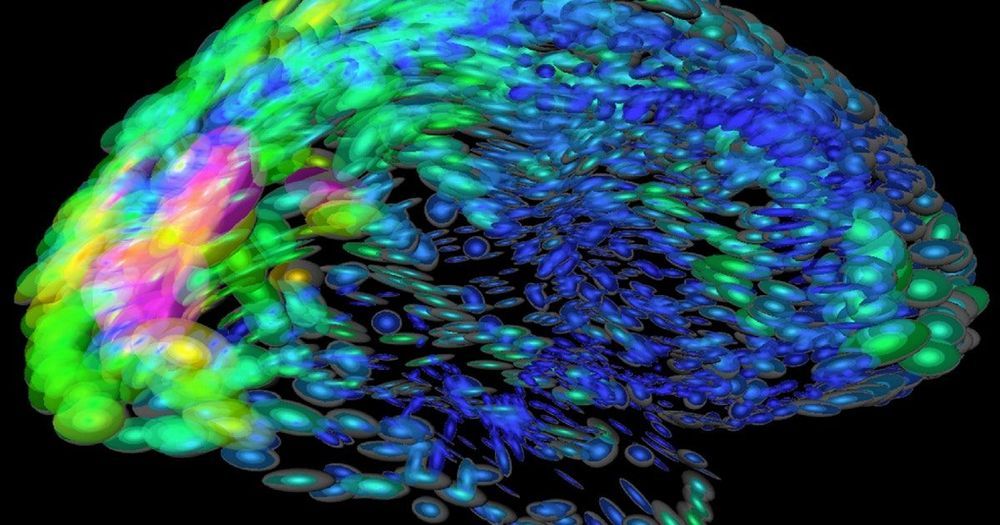


The super-thin ’wonder material’ graphene has been shaking up science for years with its amazing properties, but things get really interesting when you stack this 2D nanomaterial up against itself.
In new experiments, physicists in the US have found that when graphene is assembled in a double-layer vertical stack – with two adjacent sheets of the material that are almost touching – the proximity produces quantum states that haven’t been observed before.
These newly measured states, resulting from complex interactions of electrons between the two graphene layers, are examples of what’s called the fractional quantum Hall effect – and it’s just the latest example of how physical science gets weird when materials effectively only occupy two dimensions.
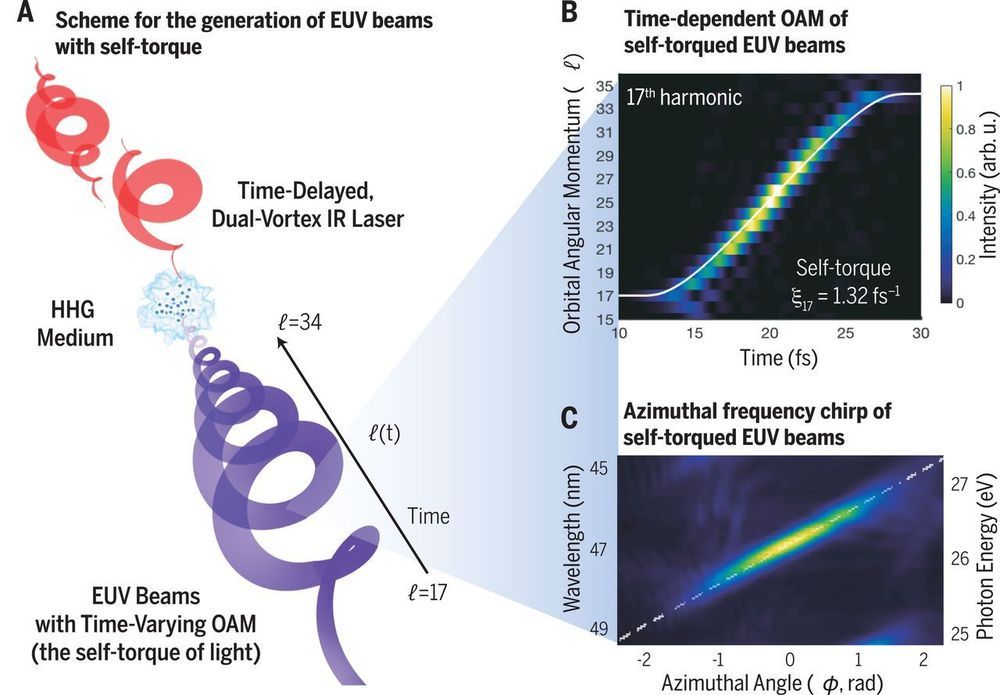
Structured light beams can serve as vortex beams carrying optical angular momentum and have been used to enhance optical communications and imaging. Rego et al. generated dynamic vortex pulses by interfering two incident time-delayed vortex beams with different orbital angular momenta through the process of high harmonic generation. A controlled time delay between the pulses allowed the high harmonic extreme-ultraviolet vortex beam to exhibit a time-dependent angular momentum, called self-torque. Such dynamic vortex pulses could potentially be used to manipulate nanostructures and atoms on ultrafast time scales.
Science, this issue p. eaaw9486.
Photography measures how much light of different color hits the photographic film. However, light is also a wave, and is therefore characterized by the phase. Phase specifies the position of a point within the wave cycle and correlates to depth of information, meaning that recording the phase of light scattered by an object can retrieve its full 3D shape, which cannot be obtained with a simple photograph. This is the basis of optical holography, popularized by fancy holograms in sci-fi movies like Star Wars.
But the problem is that the spatial resolution of the photo/hologram is limited by the wavelength of light, around or just-below 1 μm (0.001 mm). That’s fine for macroscopic objects, but it starts to fail when entering the realm of nanotechnology.
Now researchers from Fabrizio Carbone’s lab at EPFL have developed a method to see how light behaves on tiniest scale, well beyond wavelength limitations. The researchers used the most unusual photographic media: freely propagating electrons. Used in their ultrafast electron microscope, the method can encode quantum information in a holographic light pattern trapped in a nanostructure, and is based on an exotic aspect of electron and light interaction.
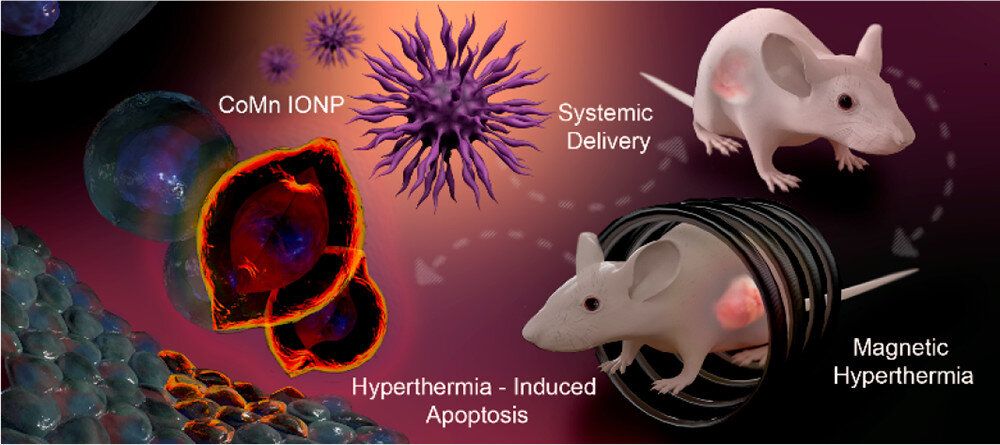
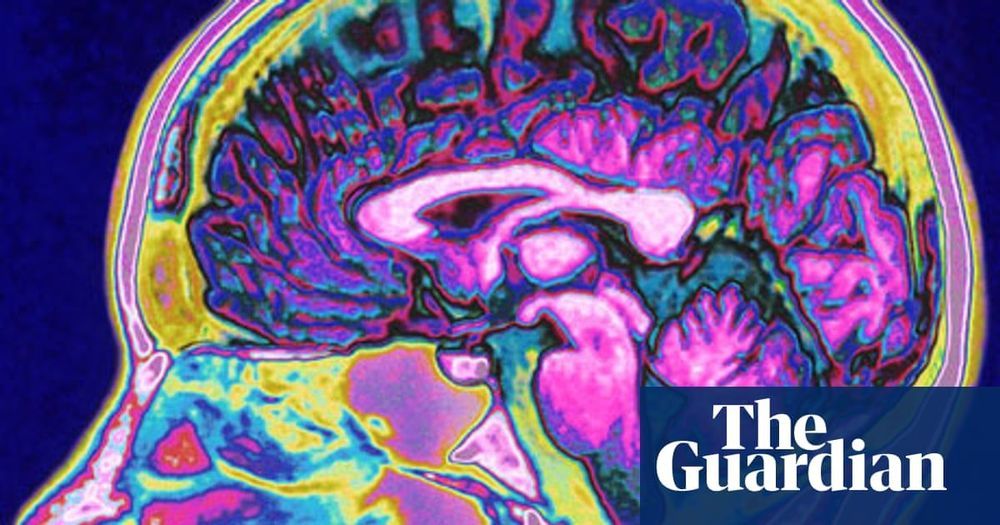

Researchers at the University of Maryland, College Park and Towson University are reporting that they have created multiple universes inside a laboratory-created multiverse — a world first.
To be exact, the researchers created a metamaterial — like those used to fashion invisibility cloaks — that, when light passes through it, multiple universes are formed within it. These universes, called Minkowski spacetimes, are similar to our own, except they more neatly tie up Einstein’s theory of special relativity by including time as a fourth dimension.
While this is rather extraordinary, the experimental setup is actually quite simple — though definitely rather unconventional. The multiverse is created inside a solution of cobalt in kerosene. This fluid isn’t usually considered a metamaterial, but lead researcher Igor Smolyaninov and co found that by applying a magnetic field, the ferromagnetic nanoparticles of cobalt line up in neat columns. When light passes through these columns, it behaves as if it’s in a Minkowski universe.
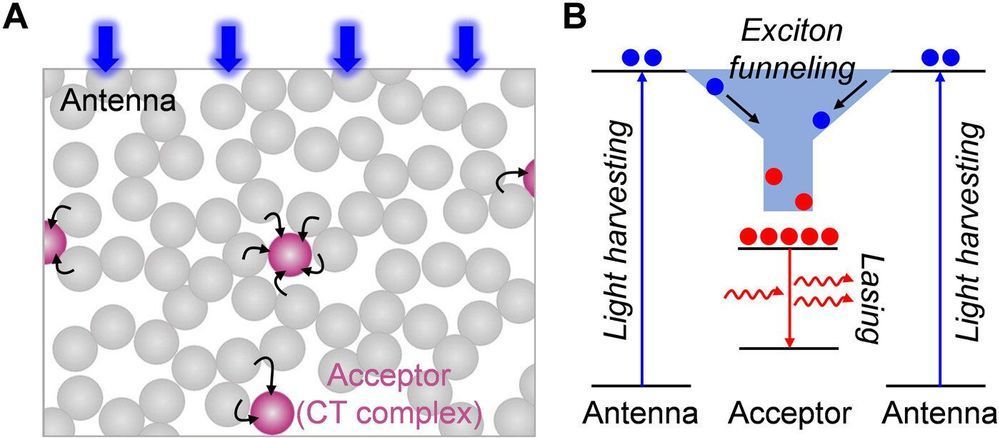
Organic solid-state lasers are essential for photonic applications, but current-driven lasers are a great challenge to develop in applied physics and materials science. While it is possible to create charge transfer complexes (i.electron-donor-acceptor complexes among two/more molecules or across a large molecule) with p-/n- type organic semiconductors in electrically pumped lasers, the existing difficulties arise from nonradiative loss due to the delocalized states of charge transfer (CT). In a recent report, Kang Wang and a team of researchers in the departments of chemistry, molecular nanostructure and nanotechnology in China demonstrated the enduring action of CT complexes by exciton funneling in p-type organic microcrystals with n-type doping.
They surrounded locally formed CT complexes containing narrow bandgaps with hosts of high levels of energy to behave as artificial light-harvesting systems. They captured the resulting excitation light energy using hosts to deliver to the CT complexes for their function as exciton funnels in order to benefit lasing actions. Wang et al. expect the preliminary results to offer in depth understanding of exciton funneling in light-harvesting systems to develop high-performance organic lasing devices. The new results are now available on Science Advances.
Organic semiconductor lasers that function across the full visible spectrum are of increasing interest due to their practical applications from multiband communication to full-color laser displays. Although they are challenging to attain, electrically pumped organic lasers can advance the existing laser technology to rival organic light-emitting diodes.

Would you like fries with your nano-nuggets?